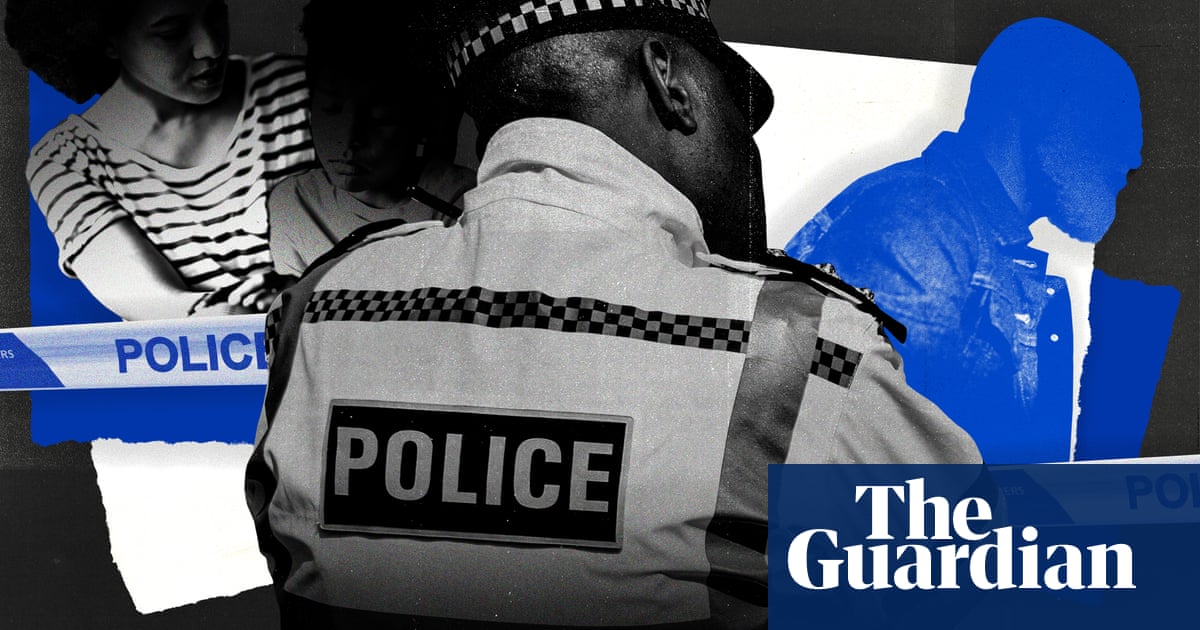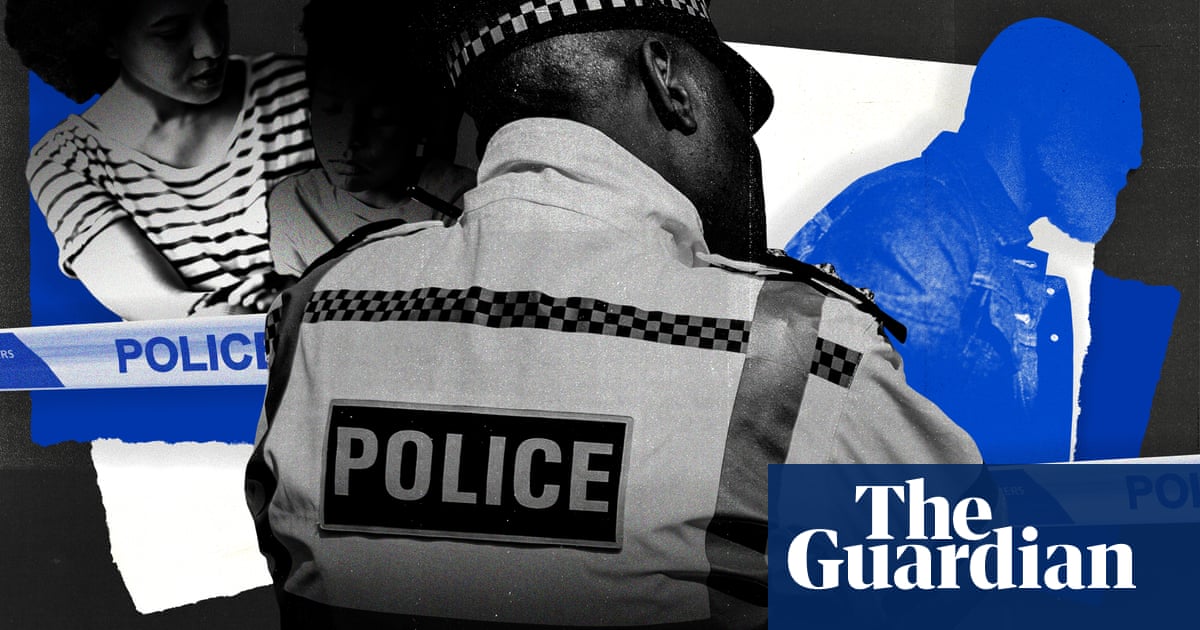
The Crown Prosecution Service decided not to pursue charges against an undercover police officer who deceived a woman into a 19-year relationship without even hearing evidence from the victim in the case.
The CPS, which says its fundamental role is to support victims and protect the public, was informed in 2014 that an undercover officer at Avon and Somerset police had used his undercover identity to deceive the woman, who was innocent of any crime, into a long-term relationship.
The relationship had at that point already lasted more than a decade and resulted in the couple having a child together. The CPS, after receiving a file of evidence from Avon and Somerset police, concluded in March 2015 that the undercover officer should not face criminal prosecution for misconduct in public office.
However, the file did not contain any evidence from his victim, who could not be interviewed about the case because she had not been informed about the deception. The woman, whom the Guardian is referring to as Mary to protect her identity, was not informed about the true identity of her partner until five years later, in 2020.
A CPS spokesperson said: “There was insufficient evidence to provide a realistic prospect of conviction.” A CPS source said the question of whether Mary should have been informed about the deception, and interviewed as part of the investigation into the case, was for the police to answer.
Under a scheme introduced in 2013, a victim of an alleged crime has the right to ask another CPS official to review their case if there is a decision not to prosecute. The CPS source said that because Mary had at that time not made an allegation, there was no scope for any such review.
However, Vera Baird, the former victims’ commissioner for England and Wales, said the CPS had denied Mary this right to review the case. “They deliberately eroded her rights by not telling her she has it. There is guidance in the CPS that they should discuss complex issues with victims. But the only way you can trigger the victims’ right to review is if the CPS tell her that they’ve had it and they’ve decided not to prosecute it. That is absolutely their obligation.”
‘Unbelievably bad’
The CPS is one of six public bodies that, the Guardian can reveal, were aware of the details of the relationship between the undercover officer and his victim, both of whom are black, for several years before she was informed.
While she remained completely oblivious that the man she was sharing her life with was using a fictional identity provided to him by police, dozens of officials were aware of that fact. In addition to CPS prosecutors, they included staff at two official watchdogs, a judge-led public inquiry, Avon and Somerset police and the body representing Britain’s top police officers.
A pivotal moment in the case occurred in 2013 when it appears that senior police were told about the existence of the relationship, which had started 12 years earlier.
For more than a decade, the officer had formed close bonds with Mary’s family. He was stepfather to Mary’s child from a previous relationship and fathered a child with Mary. Her relatives described him as a “manipulative and controlling” character.
It is unclear why he was using his undercover alias in the relationship. Avon and Somerset police recently made clear that Mary “played no role in” and “was not connected to” the officer’s undercover operations.
In 2013, leading officers at Avon and Somerset police, including Nick Gargan, its then chief constable, were called to an urgent meeting to be briefed on the case. The news was “unbelievably bad”, recalled a source with knowledge of the meeting.
“The fact that there was some kind of liaison was bad, the fact that it had turned into an enduring relationship was much worse, and the fact that there was a child was much, much worse again,” the source said.
Also at the meeting were attendees from the Association of Chief Police Officers (ACPO), the now-defunct body that represented the most senior officers in England and Wales. It was a delicate time for ACPO, which was linked to an emerging scandal involving a host of other undercover police officers who had deceived women into relationships as part of operations to monitor mostly leftwing protest groups.
The deluge of revelations led the then home secretary, Theresa May, to launch a judge-led public inquiry into undercover policing, which is still ongoing.
An ACPO representative at the 2013 meeting warned about the “emerging undercover scandals nationwide”, according to the source.
It is not clear how that advice contributed to the decision to withhold from Mary the fact that her partner was an undercover police officer. Senior officers discussed other reasons for holding back the information from her, including their concern that if the officer was publicly outed, his safety could be endangered by the criminal gangs he had infiltrated.
It is still not known what kind of operations he had been working on, but unlike those involved in the “spy cops” scandal the deployment had nothing to do with surveillance of political campaigners. One source familiar with the officer’s undercover work said it “avoided a lot of harm. This was not trifling and it was not unproductive.”
Three years later, in February 2016, Andy Marsh, who had just been appointed Avon and Somerset’s new chief constable, found out what the undercover officer had done.
“This former officer used his undercover identity, which was provided with the sole purpose of bringing dangerous criminals to justice, to enter an inappropriate relationship with an innocent person,” he told the Guardian. “The process to disclose the officer’s real identity to the family was complex due to the officer’s national deployments and the type of criminals he was investigating. While we were working to inform the family as quickly as possible, the first duty of the police is to protect life.
“We had to be confident that when the family was told that they and other members of the public would not become a target for serious criminals.”
Conflict of interest claims
Mary’s family question whether the force really was working “as quickly possible” to tell her the news, given it took them seven years to do so. They also question whether it was appropriate for Marsh’s wife, Nikki Watson, currently the deputy chief constable at Avon and Somerset, to take the leading role in the force’s handling of the highly sensitive case in early 2017. Mary’s family allege the appointment presented a conflict of interest because Watson was leading a case that had the potential to damage her husband’s tenure at the helm of Avon and Somerset police.
By then, Marsh and Watson’s marital relationship had already raised eyebrows and prompted questions in parliament and the media around risks of a conflict of interest. It had been agreed that his wife should report to another senior officer and any disciplinary issues would be examined by another force.
Mary’s sister is now calling for Watson to step down immediately from her role handling the fallout from the 19-year relationship. “Wouldn’t you, if you were her, choose not to be involved in this case?” she said. “I think it’s such a conflict of interest of her having anything to do with this.”
Avon and Somerset police said it was wrong to suggest the marital relationship had affected the force’s decisions, adding that there was no conflict of interest. Marsh and the force say the then chief constable was not involved in the appointment of his wife to lead Avon and Somerset’s handling of the case.
It took another three years after Watson was in charge of handling the case for Mary to be told her partner had deceived her for almost two decades using a police-issued undercover identity. Since she was informed, in August 2020, Mary’s family allege that senior police officers have bullied and threatened her into staying silent. They accuse police of orchestrating a cover-up as part of an attempt to protect the force.
Marsh left Avon and Somerset in 2021 and now runs the College of Policing, the professional body that sets standards for police. In his statement to the Guardian, he said: “I expect everyone in policing to operate with integrity and professionalism and categorically deny, in the strongest terms, any accusation of wrongdoing against me or that I attempted to silence the family involved. While I had no contact with the woman or her family at any time, I understand that options were given to them to keep them safe and that was the right thing to do.”
He added that he was “not being investigated” by the Independent Office for Police Conduct (IOPC) but was “supporting this process as a witness”. Avon and Somerset police also said Watson was not under investigation, and was also “being treated as a witness”.
The watchdog has previously said it is investigating “complaints from members of the public who were affected by the behaviour of the undercover officer including that senior officers deliberately withheld information from them”.
The IOPC is completing a related investigation into allegations that senior officers “failed to adequately investigate the conduct of an undercover officer once it had been brought to their attention”.
Gargan told the Guardian he had been informed by the IOPC that he had been exonerated of wrongdoing in that investigation. The watchdog declined to comment.












